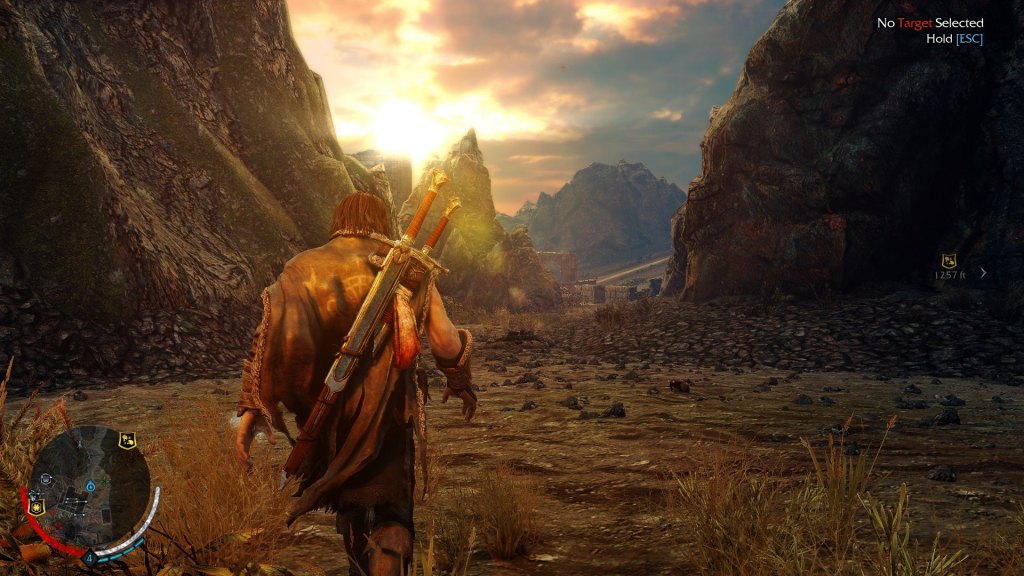In the Lands of Mordor where the Shadows lie

2014 has been full of many, many disappointing video games. Middle Earth: Shadow of Mordor is, most definitely, not one of them. Taking place on Tolkien’s Arda, the inspiration behind an uncountable number of modern fantasy settings, Shadow of Mordor depicts Middle Earth as you’ve never seen it before – brutal, unforgiving and very, very gory.
Players take on the role of Talion, a fallen Ranger of Gondor seeking vengeance against Sauron and his hordes for the murder and defilement of his entire family. ‘Banished from death’ and bound to the spirit of a long-dead Elf lord, Talion must now use his ghostly powers and pseudo-immortality to carve a path through the hordes of Mordor and take the fight to the Lord of the Rings himself.
Though fairly decent, the embedded narrative of the game soon takes a backseat to the game’s main star – the player created scenarios brought into existence by the exclusive Nemesis System. Essentially, this feature allows the spontaneous, random creation of your own rival or ‘nemesis’ based on your actions and play-style. The lands of Mordor are populated with a large number of unique, randomly generated Orc captains each with their own different personality, strengths and weaknesses and occupying a specific rank in the Orcish hierarchy. This hierarchy is far from being static, with several different Orcish captains fighting and competing with each other to go up the ladder even without your involvement.
Dying to (or, in some cases, running away from) these captains cause them to ‘level up’, much like most player characters do in regular role playing games, making them stronger, wiser and harder to kill as they rise up in Orcish society. Even the most basic Orc captain is far from being stupid though. They will call backup, exploit the surroundings and do everything that is in their powers to keep your blade as far away from their necks as possible. Despite their bravado, most Orcish captains will run the first chance they get when the tables turn on them.
Of course, as good as the Nemesis system is, it wouldn’t have been nearly as good if the gameplay was sub-par. Make the combat too easy and the Nemesis system loses most of its value; make it too hard and the Nemesis system makes the game unwinnable. And that’s where Shadow of Mordor hits the nail on the heads. The combat, borrowing quite a bit from the Batman: Arkham series and Assassin’s Creed , remains challenging enough to keep players entertained while at the same time, making killing even a Legendary Warchief doable and very, very rewarding. Later on in the game, the player gains the ability to ‘brand’ or mind control Orcs into following him, which adds another dimension to gameplay – politics. Subtly pulling the strings as you watch your ‘pet’ rise up the ranks and become a Warchief has never been more satisfying.
However, not everything appeals to everybody and if you are not a big fan of the Arkham series’ ‘free-flowing’ combat system then you may reconsider buying this game. The main storyline is actually very, very short and there are only so many collectibles you can find in Mordor. The bleak landscape of Mordor may get dull and dreary very fast and the free-running mechanics are nowhere near as polished as the ones from Assassin’s Creed.
That being said, if you do enjoy rewardingly challenging combat, an immersive game world that reacts to your actions, extremely intelligent AI and, above all, brutalizing Orcs, then this game is definitely for you.





